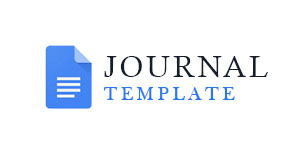IMPLEMENTATION OF ZAKAT ACCOUNTING BASED ON PSAK 109 IN LAZISMU PAYAKUMBUH CITY
Abstract
Keywords
Full Text:
PDFReferences
Kurniasari, Wiwin. Transparansi Pengelolaan Masjid dengan Laporan Keuangan Berdasarkan Pernyataan Standar Akuntansi Keuangan (PSAK 45).Jurnal Muqtashid. Vol.2, No.1 Juni 2011: STAIN Salatiga
Lexy J. Moleong 2009, Metodologi Penelitian Kualitatif, Bandung: Remaja Rosdakarya,
Mufraini, Arief. 2018, Akuntasi dan Manajemen Zakat: Mengomunikasikan Kesadaran dan Membangun Jaringan. Jakarta: Kencana Prenada Media Group.
Mursyidi, 2003, Akuntansi Zakat Kontemporer, PT.Remaja Rosdakarya Offset, Bandung
Nurhayati, Sri dan Wasilah. 2013. Akuntansi Syariah di Indonesia. Jakarta: Salemba Empat
Saifuddin Azwar, Metode Penelitian, Yogyakarta: Pustaka Pelajar, Cet-5, 2004
Sartika Wati HS Arief 2017, Analisis Penerapan PSAK No. 109 Tentang Akuntansi Zakat, Infaq/Sedekah Pada Badan Amil Zakat Nasional Kota Manado
Sugiyono. 2013. Metode Penelitian Pendidikan Pendekatan Kuantitatif, Kualitatif, dan R&D. Bandung: Alfabeta
-----------. 2014. Metode Penelitian Pendidikan Pendekatan Kuantitatif, Kualitatif, dan R&D. Bandung: Alfabeta
Thoriquddin, M. 2015. Pengelolaan Zakat Produktif Perspektif Maqasid Al-Syari’ah Ibnu ‘Asyur. Malang: UIN Maliki Press.
Undang-Undang No. 23 Tahun 2011 Tentang Pengelolaan Zakat
Wida, Wawancara, 20 Mei 2020DOI: https://doi.org/10.24952/tijaroh.v7i2.4751
Refbacks
- There are currently no refbacks.
Copyright (c) 2021 At-tijaroh: Jurnal Ilmu Manajemen dan Bisnis Islam

This work is licensed under a Creative Commons Attribution-ShareAlike 4.0 International License.














